Redditors Are Afraid They're Ill — Without a Diagnosis!
14 May 2025Imagine you're sitting with friends, talking about how tired everyone is of constant health check-ups but here's the surprising part — there are people who are so convinced they're ill that they've already written their will but they still haven’t gone to the hospital, or doctors are telling them they’re perfectly healthy... and yet, they still believe they have cancer, heart disease, or something deadly. How can you not panic when every little cough seems fatal? In these situations, doctors can’t always reassure, and the internet is already full of forums overflowing with “diagnoses” — and here are some of them!
The Noise Only You Can Hear
People who suspect they have tinnitus but have never received an official diagnosis live in a kind of sound isolation — not from the world but right inside it. They hear sounds that don’t exist: ringing, buzzing, humming — and no one can turn them off.

The problem is that these symptoms are too often dismissed as “stress” or “fatigue” until they become a permanent backdrop to life. And frequently, a person simply learns to coexist with this noise, because getting a clear answer from doctors is almost like trying to prove your house is haunted.
When the Body Says: “I Wasn’t Built from This Manual”
Those who suspect they have Marfan syndrome or Ehlers-Danlos often live in a body that feels like it never fit the standard settings. It’s not just odd pains — it’s the sensation that your body was put together without instructions.

But without genetic testing, the diagnosis hangs in the air. Doctors shrug, the pain remains... and the person lives with the feeling that their “construction” isn’t just unique — it could be dangerous, and no one will say it officially.
When Everything in Your Head Feels Not Too Correct…
Obsessive thoughts, rituals, an inner trembling of anxiety — people who suspect they have obsessive-compulsive disorder often feel like something is “off” but can’t quite explain why. Suddenly, internet research, other people’s stories, and forums become the first “diagnosis.”
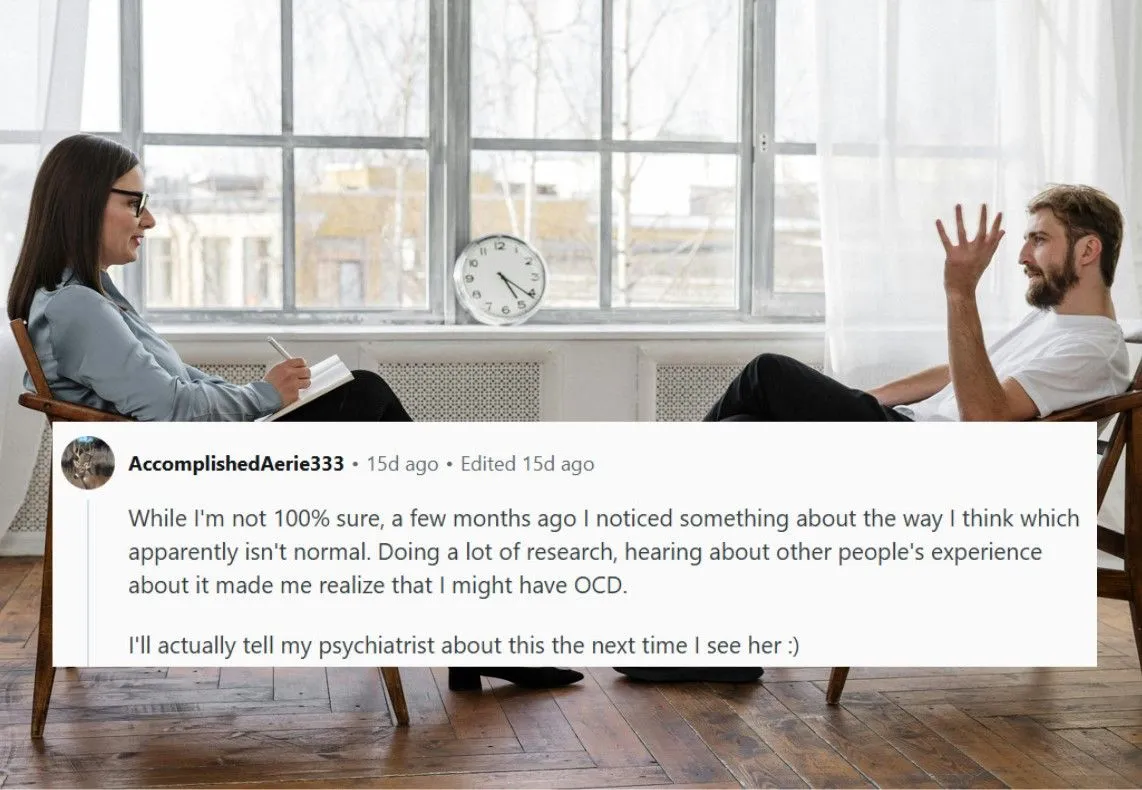
It’s not self-treatment, it’s an SOS: the person has only just started to realize that their way of thinking isn’t just a personality trait but potentially a disorder that needs attention.
The Syndrome Even Doctors Don’t Know About
When you’re vomiting, sweating, your stomach is in knots, and doctors look at you like you’re faking it — it’s not just scary, it’s desperate. People who suspect they have cannabinoid hyperemesis syndrome are often left without help simply because no one even knows what it is.
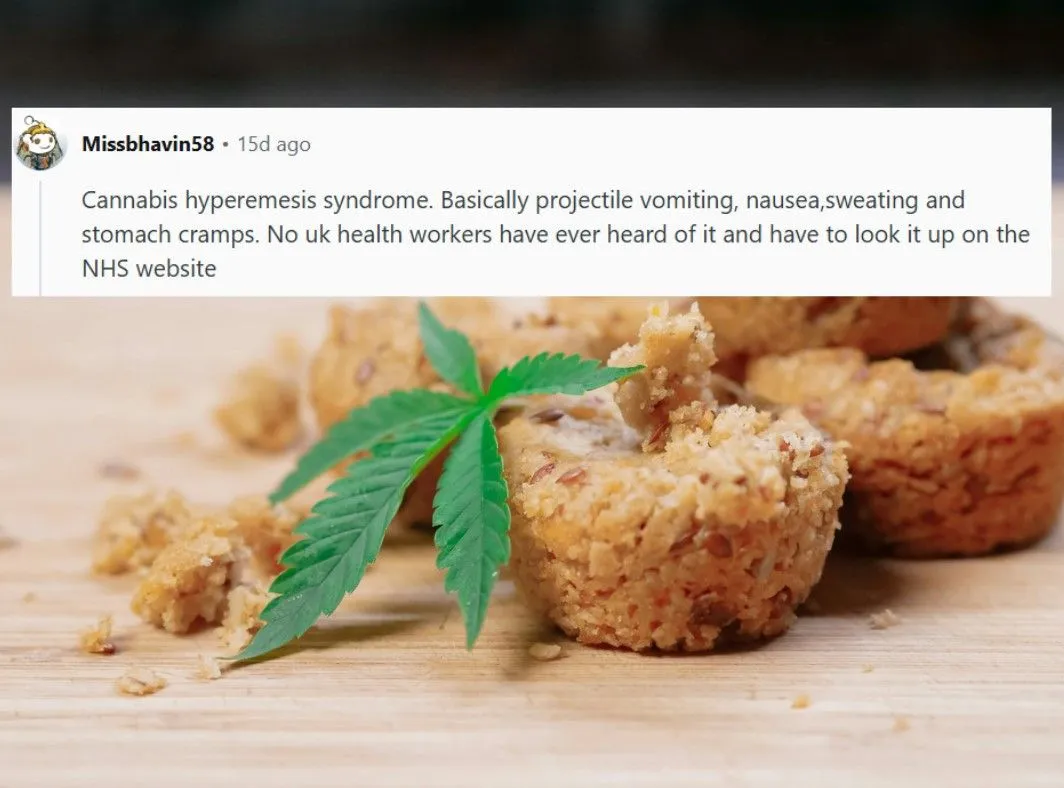
In the UK, for example, doctors search the NHS website in front of the patient. And while medicine scrambles to catch up with reality, the person suffers again and again — completely alone.
When Everyone’s Sure — But You Can’t Afford to Be
The conversation about autism is increasingly being led not by professionals but by communities. People who score high on online tests, who talk with friends and psychologists, who compare themselves to others — everything points to the diagnosis.
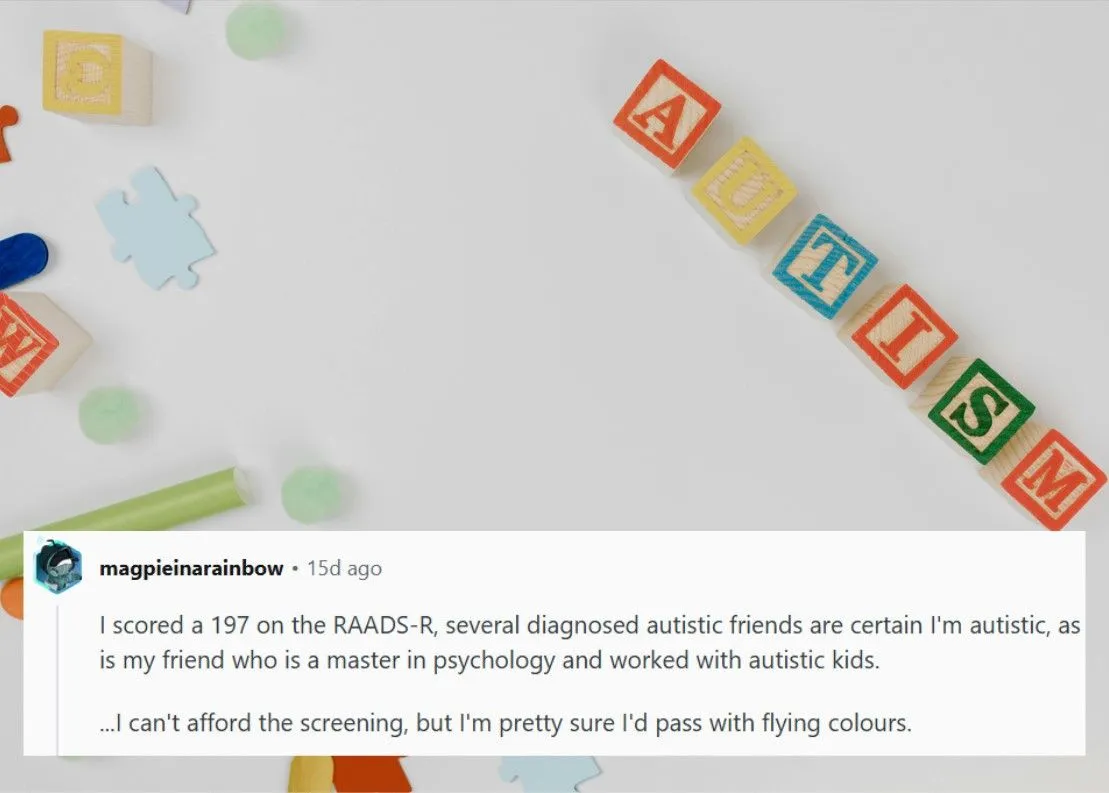
But the cost of formal screening makes that knowledge inaccessible. So they simply “live as autistic people,” without a certificate but with a deep sense that they are different in all the ways that matter.
The Line Between Feelings and Diagnosis
Sometimes mental health conditions aren’t confirmed by professionals but feel so intense they can’t be ignored. Suspecting bipolar disorder is one of those cases.

Even if therapists don’t label it, the person sees the patterns: manic cleaning, endless new hobbies, drastic mood shifts. Medication helps but there’s no official diagnosis. And that leaves the person floating somewhere between “normal” and “unknown.”
When You Just Know There’s No Going Back
Those who’ve once cut out gluten and dairy — and then got “glutened” by accident — know it’s more than just discomfort. It’s a full-body crash.

And while the test for celiac disease requires several weeks of gluten consumption, very few of these self-experimenters are willing to go through that again. They don’t need a diagnosis to believe their body — it’s already told them everything they need to know.
When Sounds Drive You Insane
Misophonia isn’t just being annoyed by chewing. It’s a reaction as intense as panic or rage. People who face this every day live in a state of constant alertness: dinner tables, movie theaters, even offices can become battlegrounds.

And although this condition is recognized by medicine, getting a diagnosis is still difficult — because irritation from sound is rarely seen as a clinical problem.
Life on a Powder Keg
Epileptic seizures might not look “scary” to outsiders — freezing, strange movements, zoning out. But for those who experience them, it’s a constant awareness that their brain could “reboot” at any moment.

Neurological diagnostics are complex and expensive, especially if the person already has other more “urgent” diagnoses. So they live in uncertainty, knowing something isn’t right but without the means to put everything in order. And that’s heartbreaking.
When the Wish to Become a Parent Doesn’t Come True
Fertility struggles are among the most emotionally brutal experiences a person can go through. The suspicion of PCOS (polycystic ovary syndrome) rarely stems from one symptom — it’s the whole picture: hormones, missed ovulation, pregnancy loss.

But when doctors dismiss concerns or won’t even let you see the ultrasound screen, people are left in complete isolation, often diagnosing themselves… but it shouldn’t have to be this way.
Skin You Can’t Stop Touching
Compulsive skin picking isn’t just a bad habit. It’s an unconscious, sometimes painful act that feels impossible to stop. People with keratosis pilaris suffer not just from the visible signs but from the shame that comes with it.

They fear seeking help because “it’s just skin,” even though in reality it may be a form of disorder — one that requires psychiatric attention, not silence.
“Why Didn’t Anyone Notice?”
If every hyperactive child had been diagnosed in time, the adult world would look very different. Many people who now suspect they have ADHD remember school as a constant backdrop of shame and confusion.
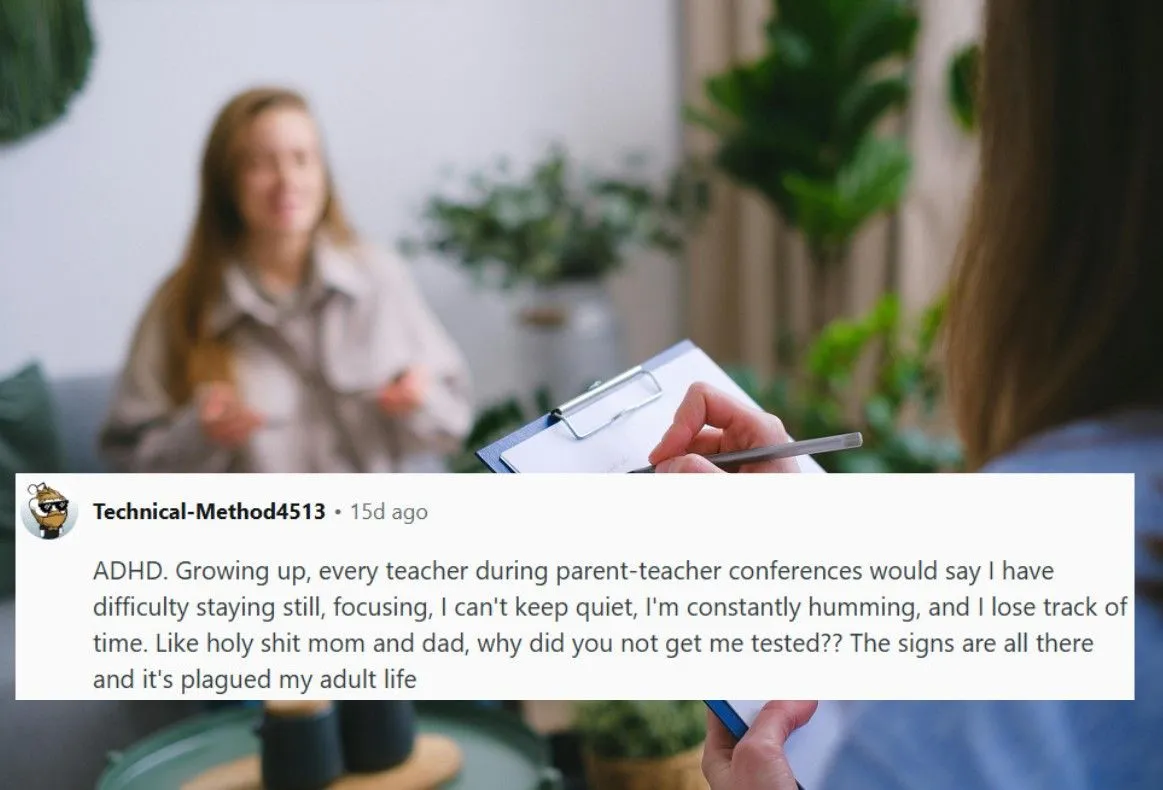
The inability to sit still, constant interruptions, zoning out, losing track of time — these aren’t laziness or bad behavior but once were dismissed as just “how kids are.” And now in adulthood, it’s turned into struggles with work, relationships, and self-esteem — which is why seeking help sooner rather than later matters.
A Stomach Without a Gallbladder — And Still in Pain
Gallbladder removal was supposed to be the solution. But what if the pain and digestive problems never went away? People dealing with postcholecystectomy syndrome often don’t receive proper care because doctors treat the surgery as the “final chapter.”
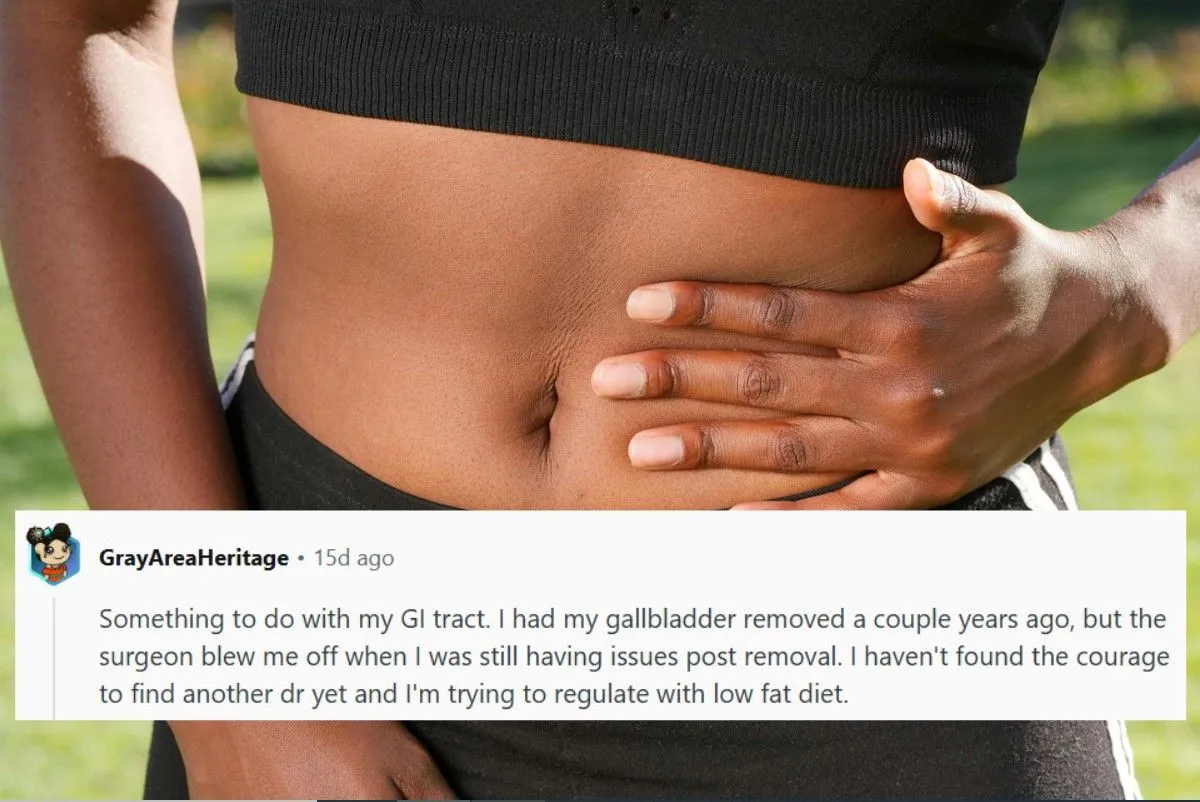
Yet the person continues to suffer, too afraid to go back to a doctor and hear again that “everything looks normal.”
When Diagnoses Only Make Things More Confusing
It’s possible to convince a person that they’re “too unique” to have ordinary mental health issues. As absurd as it sounds, that’s the message some autistic people receive from professionals. As if being on the spectrum somehow excludes them from experiencing depression, anxiety, or BPD.
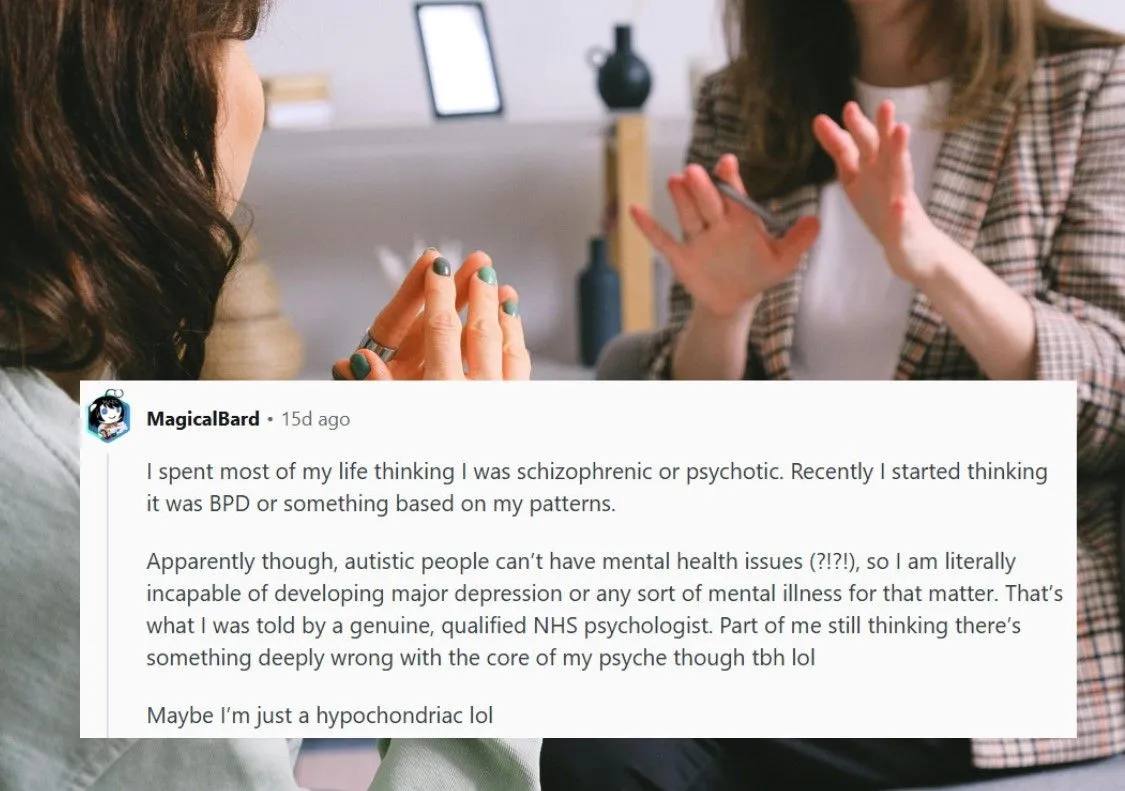
This isn’t just a mistake — it’s a refusal to acknowledge the complexity of the human psyche. And it can leave the person wondering if they’re fundamentally “wrong” somehow.
The Former Asperger’s Syndrome Never Really Left
Yes, the term “Asperger’s” is no longer in use but the feeling of “this is me” hasn’t disappeared. A love of systems, details, structure, difficulty in social settings — none of that has gone anywhere.
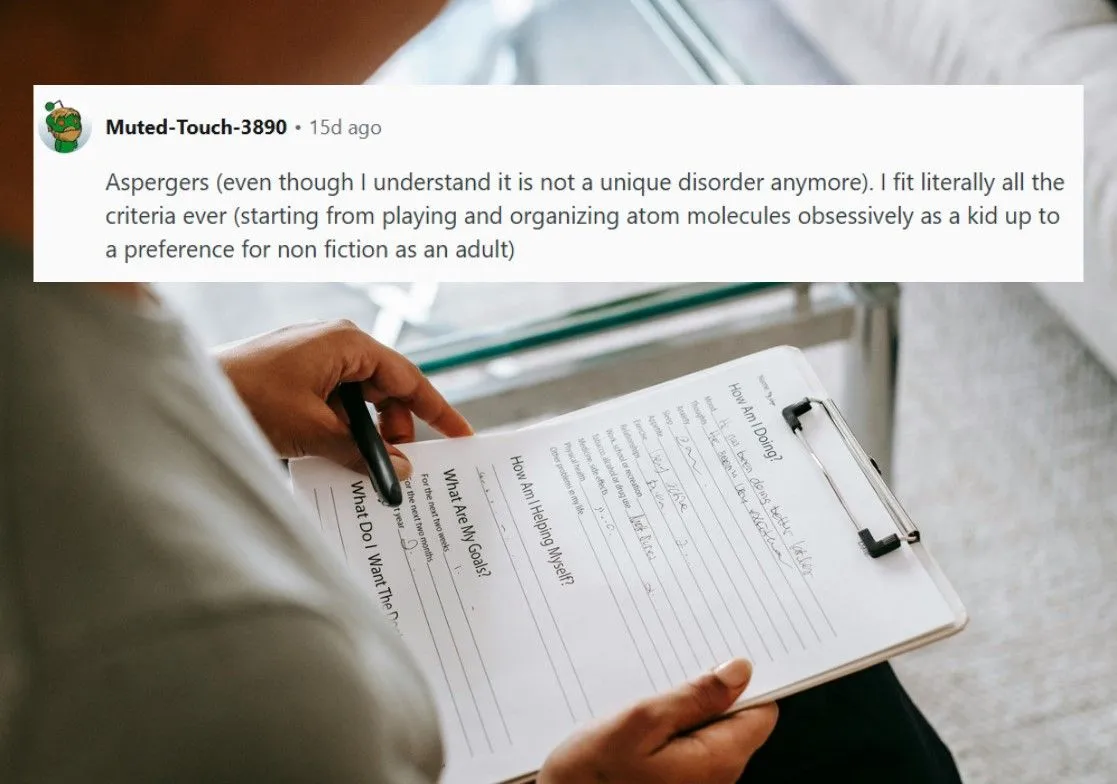
People see themselves in descriptions, stories, childhood memories, and even without the official name, they know something is different. But the question remains: “Why do I need a diagnosis if I already understand myself?”
Tumor, That Doesn’t Really Exist But Kind Of Does
It sounds like a bad joke (though not a funny one): doctors look at your test results, furrow their brows, and say, “Well, everything points to a pituitary tumor… but there’s nothing on the scans, so you don’t have one.” And that’s it, medicine washes its hands of it.
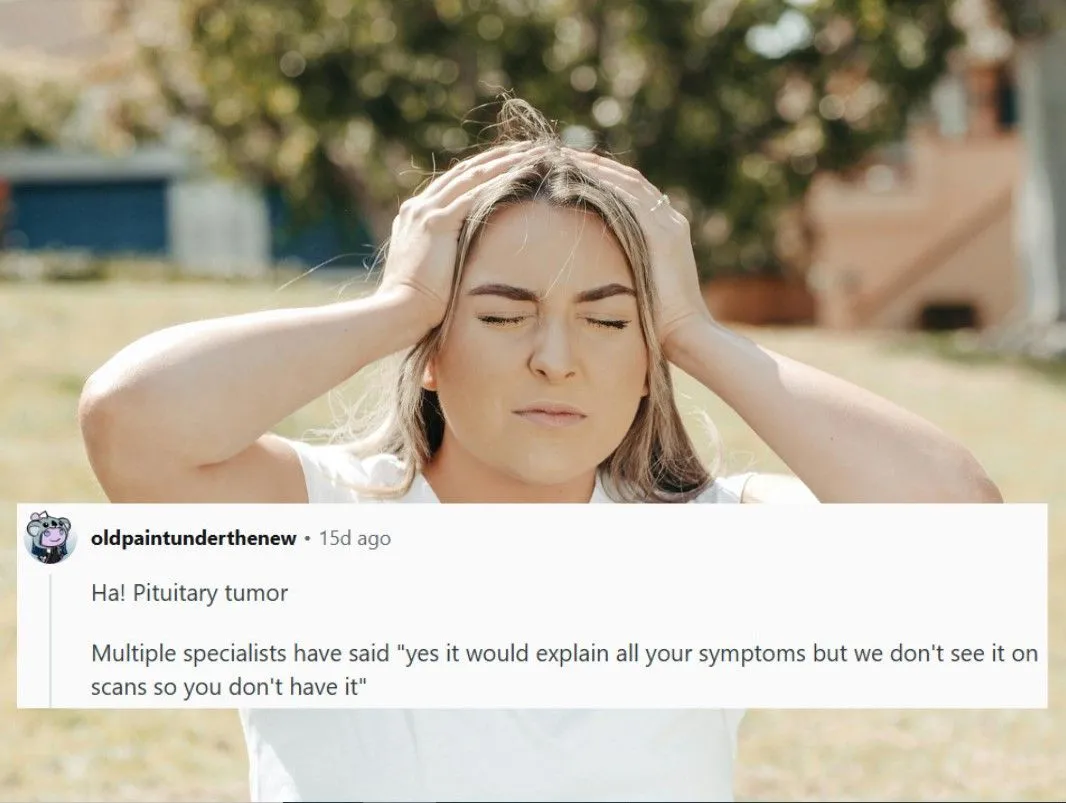
Yet, the hormonal issues, fatigue, blood pressure swings, vision changes, and mood swings — all of these don’t just disappear. You walk around with the feeling that something serious might be going on inside but no one can officially see it...
When Something Strange Happens In Your Head
As you can tell from this story, there are symptoms that are hard to even explain to Google. It's not a headache or anxiety but something strange, almost alien: it's as if your brain sometimes shuts down, your body malfunctions, coordination is off, speech or vision fades but never completely. It’s not just the fact that it happens that’s frightening but also the certainty that this isn’t just imagined.
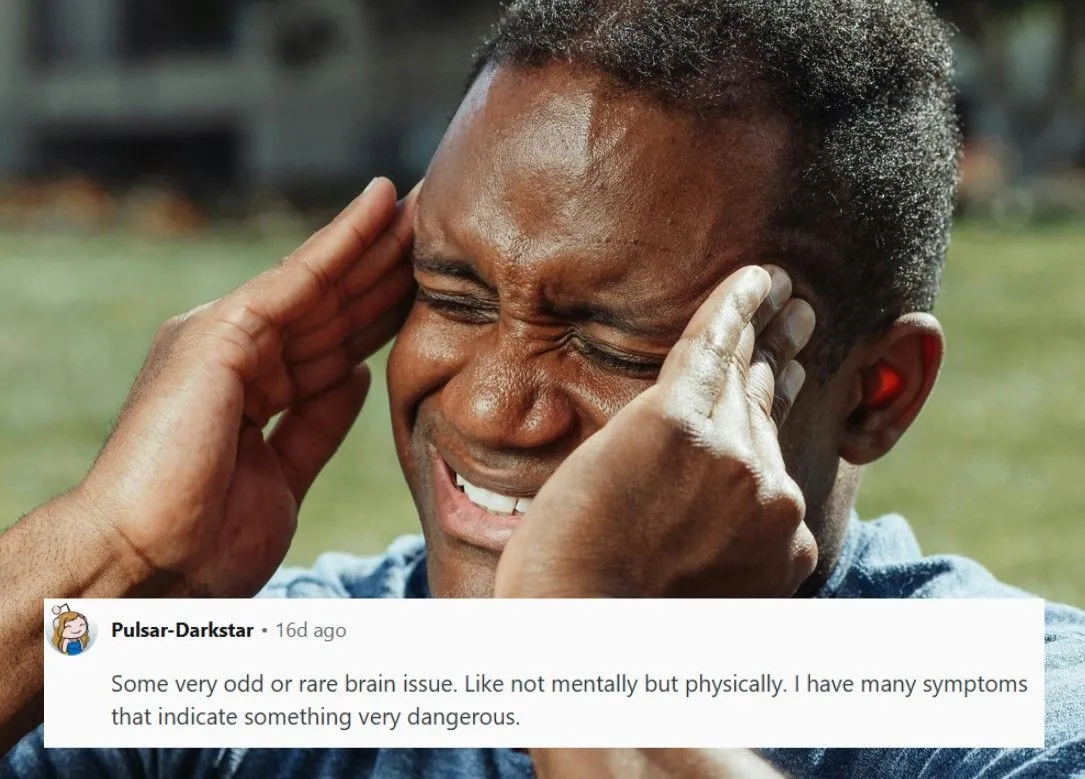
You feel it in every part of your body... yet no doctor can say exactly what this malfunction is. Maybe it’s something rare, dangerous, and incredibly hard to diagnose. Until a diagnosis is found, all you can do is hope your brain doesn’t decide to take a permanent vacation.
Lupus? Well, Almost. In Short, We Don’t Know!
When a diagnosis almost seems like it’s been made but hasn’t been officially confirmed, it triggers a whole storm — not just in your body but also in your mind. On one hand, you’ve already accepted it: you’ve changed your routine, stopped eating certain foods, started reading forums and seeking support. On the other hand, medicine refuses to give confirmation. It’s like trying to stay afloat not knowing if there’s solid ground beneath you.
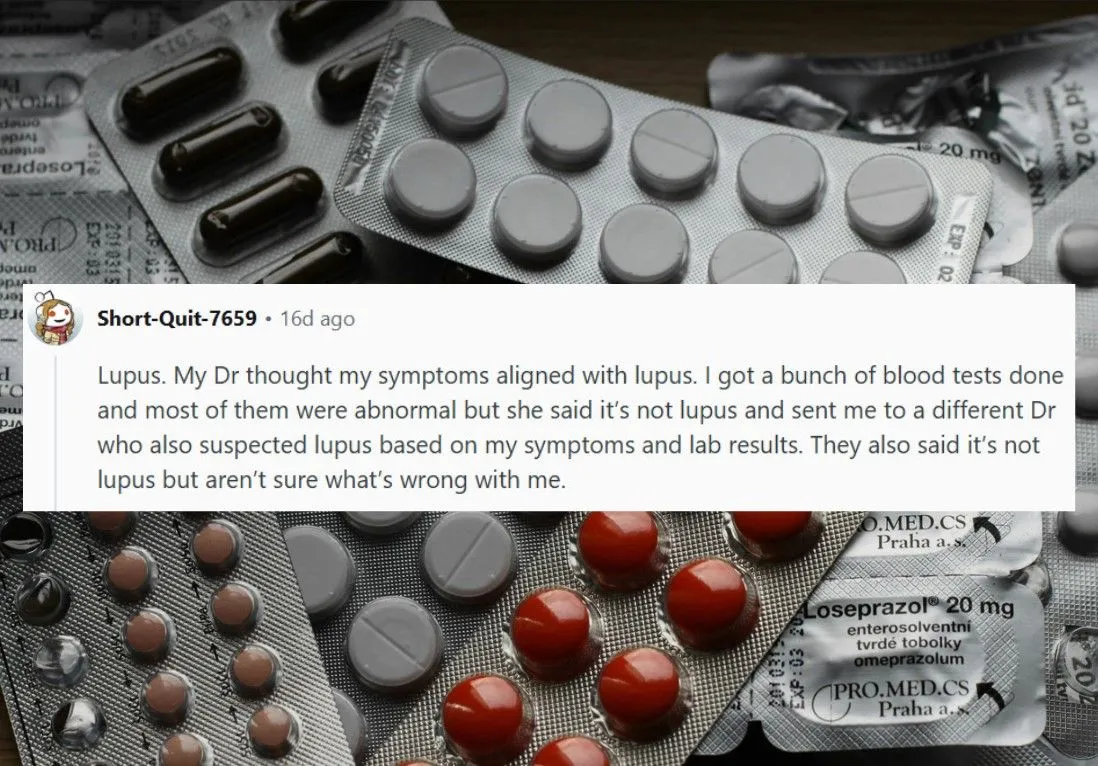
And then there’s the fear of looking like a "hypochondriac" — you’re complaining but the documents are all clean. You can change doctors but that feeling that your body is failing and there’s no help is the truly terrifying part!
So Many Symptoms but What To Do?
The irony is that rare diseases often turn out to be “too common” for anyone to really pay attention to. Especially when a patient doesn’t have the full "collection" of symptoms.

That’s when you have to be not just a patient but almost a medical expert — proving that yes, the syndrome can look exactly like this. While doctors shrug their shoulders, you continue living on painkillers, with surgical scars, and under the constant fear of new dislocations.
A Horrible Allergy To Life
Histamine intolerance is not just a reaction to strawberries. It’s when ordinary life turns into a minefield. Outside — spring, everyone is celebrating the blooming season but for some, it’s the season of panic.
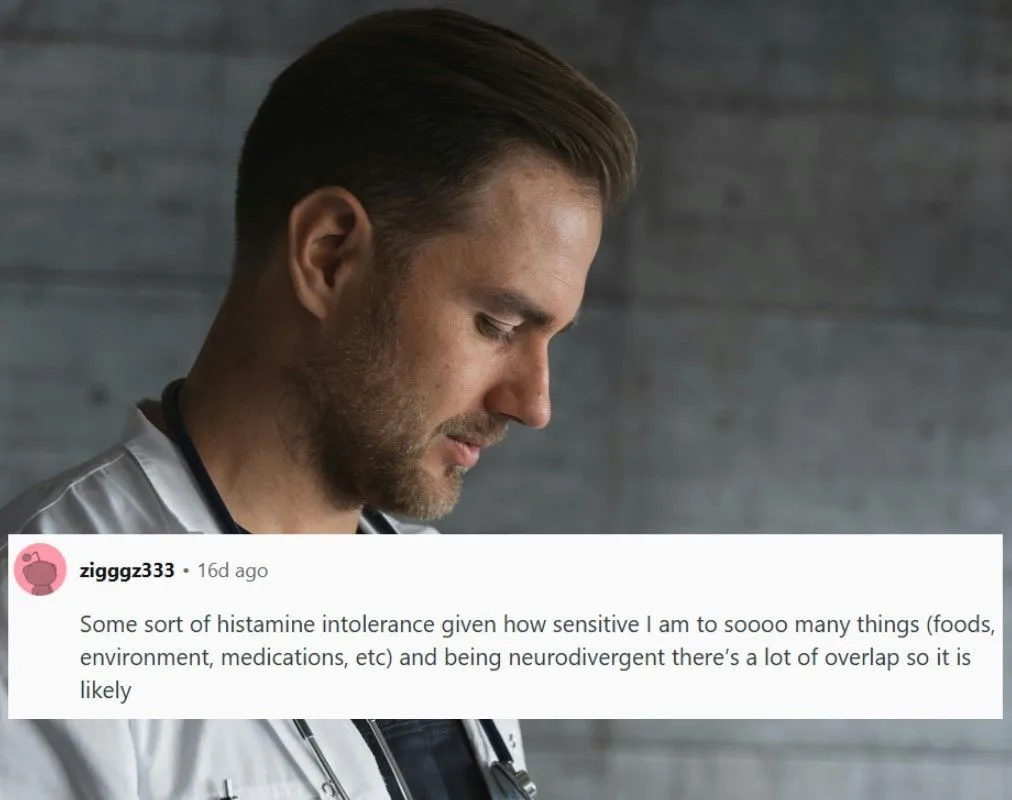
It’s especially hard when a person can’t pinpoint what triggered the reaction. Doctors most often shrug it off as stress, and the person just learns to live as though everything around them is a potential allergen.
When The Stomach Just Gives Up!
Here’s a story when every attempt to eat becomes an experiment with unpredictable outcomes. Even if food doesn’t cause pain or vomiting, the feeling of “food coma” remains. It’s surprising how difficult it is to prove that digestion actually isn’t working.

Especially when the test for this requires eating a whole portion — when a regular meal is already too much. It creates a vicious cycle: to get a diagnosis, you have to do what your body can’t handle. For now, it’s just tube feeding and the constant reminder that even something as basic as eating can be an impossible task. Horrible!
Memory Like A Sieve!
Memory problems aren’t always sudden amnesia like in the movies. More often, it’s little oddities that you notice yourself. The word you typed turns out to be wrong. The phrase you were about to say disappears. A simple name suddenly doesn’t come to mind. And it’s scary! Not because it’s “the diagnosis,” but because what’s next?
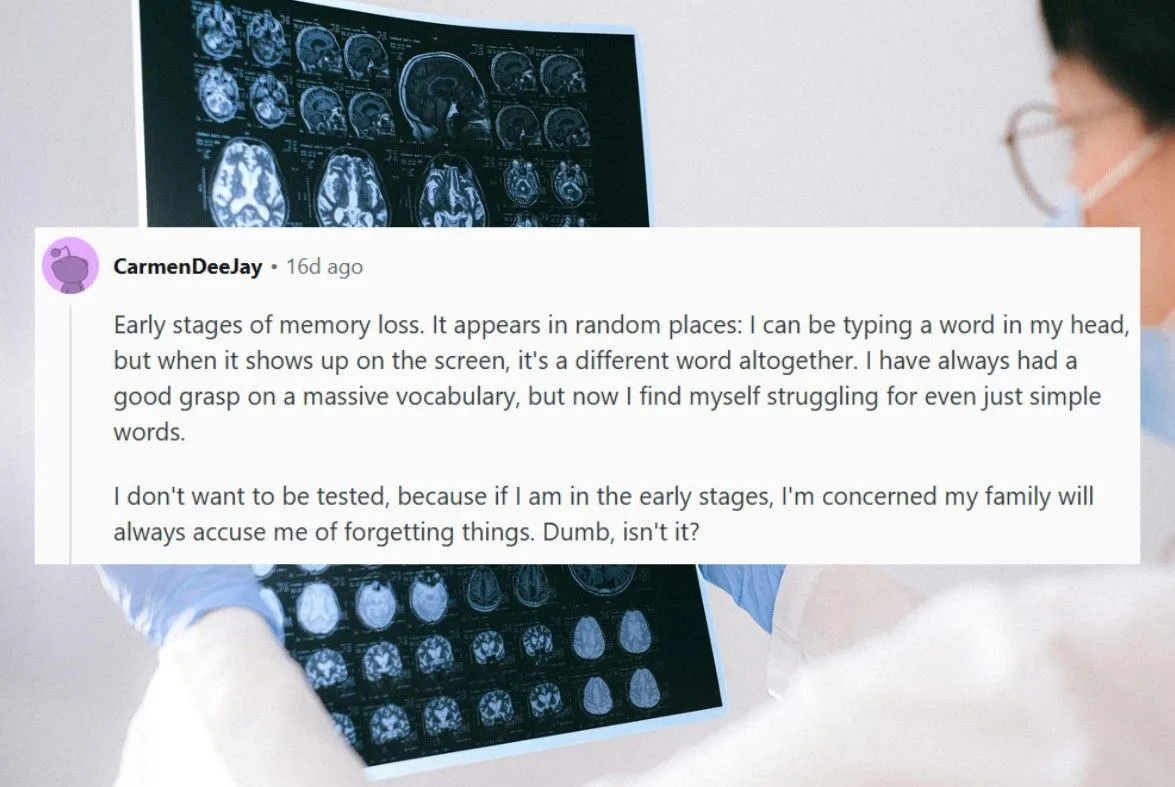
How will this affect work? Family? What will conversations look like if your loved ones start noticing the forgotten details? So, unfortunately, some people find it easier to joke it off, blame it on tiredness, and pretend nothing’s happening.
Lactose, You Are So Unpredictable!
The essence of lactose intolerance is in its unpredictability. You drink milk — all the classic suffering: bloating, pain, rumbling through the office. But cheese — that’s fine. Pasta with white sauce — now that’s like a challenge to fate. The game begins without rules: the same dish might pass without a trace one day, and the next, it will knock you out for a day.

And while the diagnosis is clear, when your body delivers such a varied range of reactions, you start doubting even your most basic knowledge of yourself. Intuition takes over: eat what worked last time and hope for the best. Every time it feels like an exam on how well you’re listening to your body.
Thyroid Working In Economy Mode
With hypothyroidism, it's like entering slow-motion mode. Everything takes longer, feels heavier, as if inside you there are sandglasses where the sand is stuck. Your well-being fluctuates between sleepiness and irritability, hair falls out, and your body feels as if it’s filled with lead.
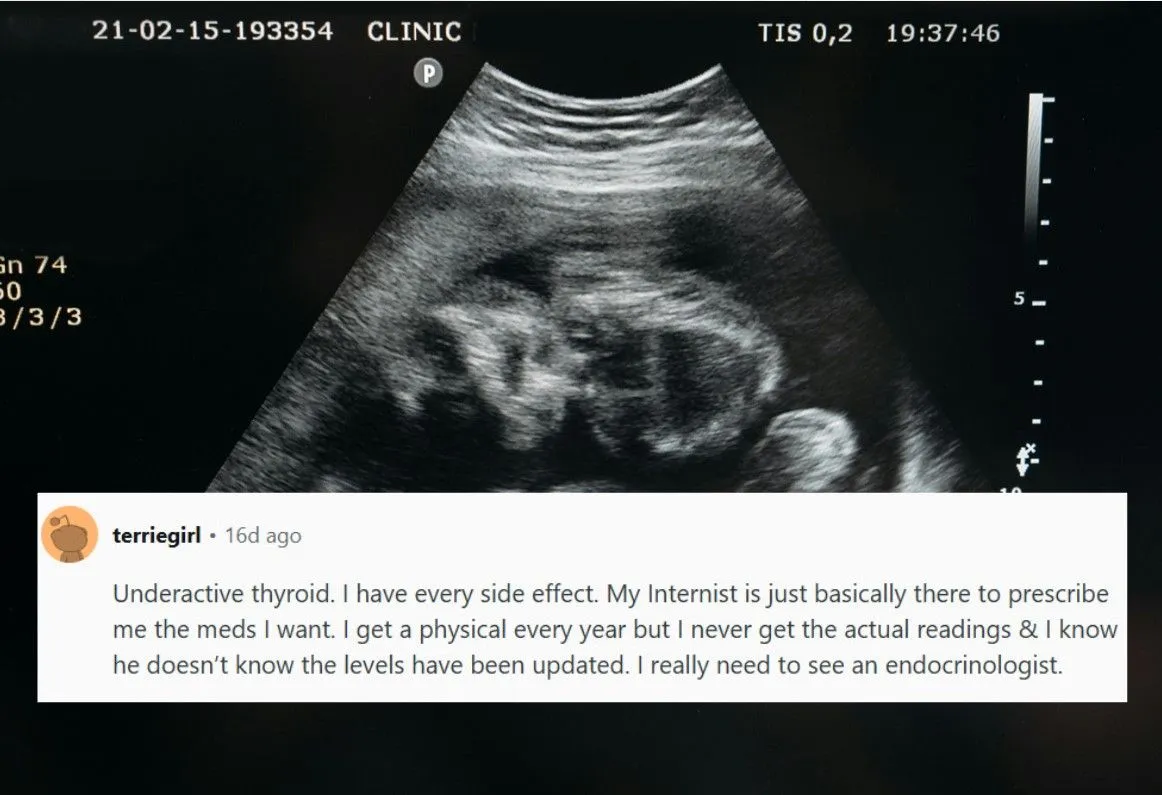
But when a doctor views this condition as something routine, you stop expecting understanding. Pills? Here they are. But why do you feel worse than before? That’s no longer their concern!
"You Probably Just Have Hypochondria"
For someone prone to health anxiety, every symptom feels like an alarming signal. A little twinge somewhere — already the worst-case scenario is in your mind. But when such a person actually gets sick, they often stay silent. They're too afraid that they'll once again hear, "You made this up."
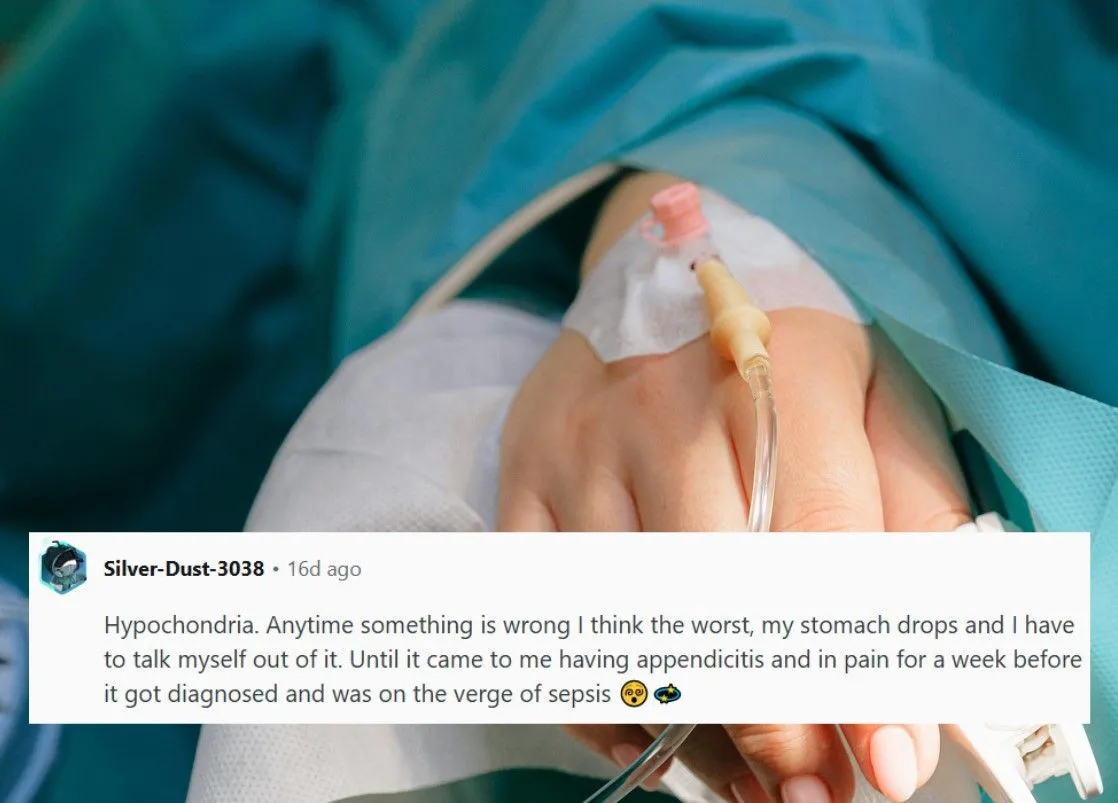
And that’s when anxiety can play a cruel trick — not because it's real but because it’s been dismissed and ignored so often. An appendix not noticed in time — it’s not just pain but a reminder to notice serious symptoms early and not endure the pain.
Owls, Unite!
When your body’s rhythm works according to its own rules, the world becomes a hostile place. Society demands early rises but your body doesn’t get going until morning. And no matter how many times you’re told to "sleep earlier" — your body just doesn’t listen.
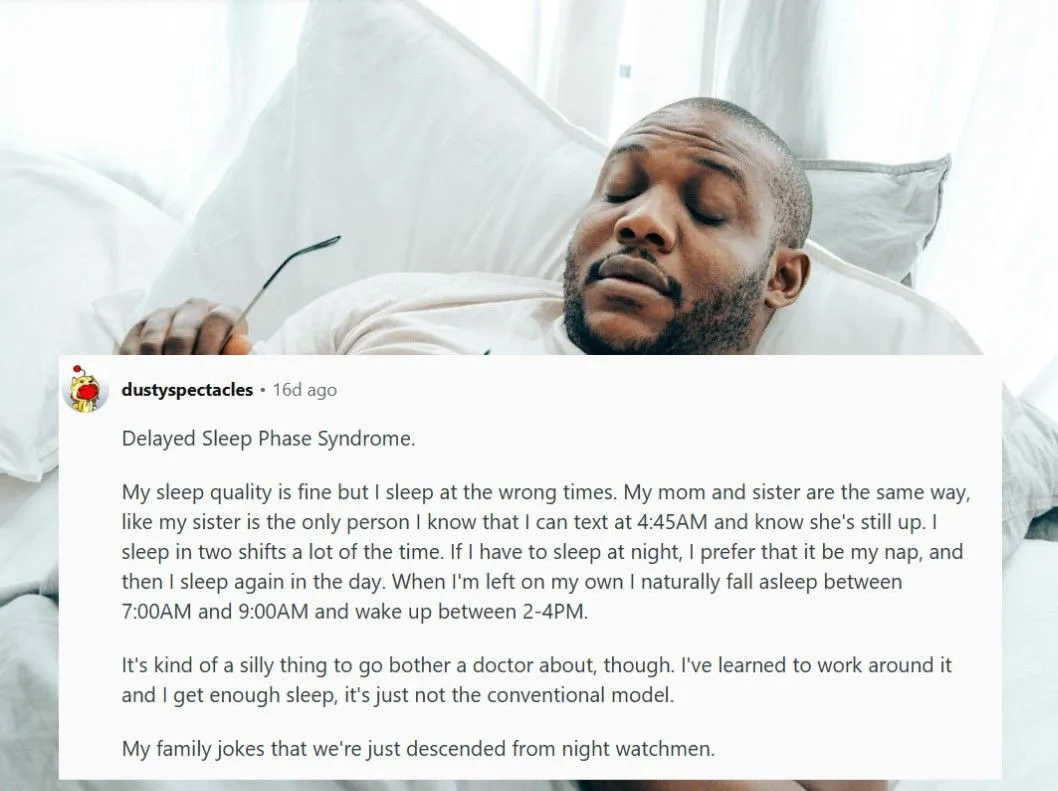
In such situations, a person either gets used to remote work, staying up nights, or lives in a perpetual jet lag state. The phrase "you're just lazy" is especially irritating. The sleep is deep and restful, just not at the hours others expect...
"Most Likely Cancer"
When cancer losses become part of the family history, every discomfort is scrutinized with extreme attention. Any change is seen as a potential sign of something terrifying. It’s not hysteria or panic but rather an intuitive alertness.
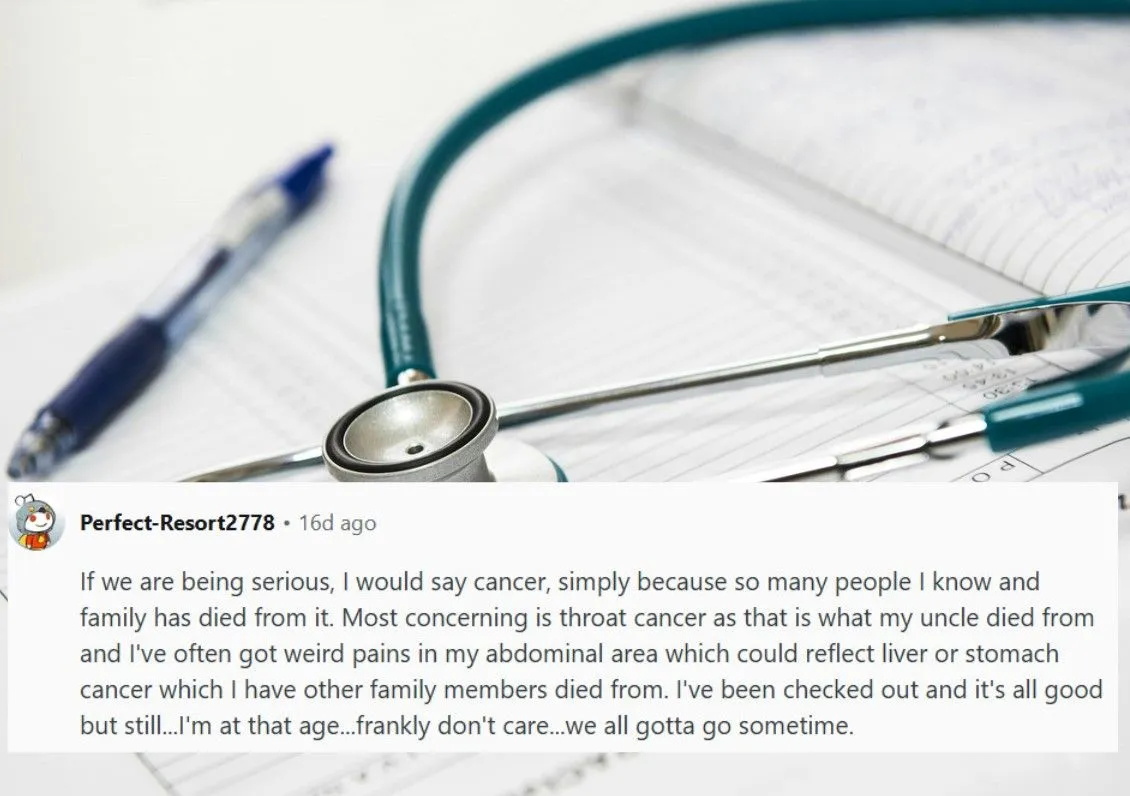
Then the doctors say, “You’re healthy.” But this doesn’t bring relief, it just postpones the anxiety for the next time. Life goes on for this person from Reddit but the anxiety doesn’t fade.
Feeling Out Of Place Since Childhood
Sometimes, when facing setbacks in their personal life, people joke about having some "cooties" — an imaginary disease that supposedly prevents them from having relationships. This explanation sounds like a joke but it hides a deeper sense of loneliness or insecurity.

Even though "cooties" don’t exist in medical practice, this joke might reflect the hidden struggles of someone who feels like they can’t find their partner. In such cases, it might be helpful to seek a consultation with a psychologist.
Allergy To...Chocolate
When it comes to an allergy to something delicious, it’s always a tragedy. But if the symptoms don’t follow the typical pattern, confusion sets in. There’s no rash, no itching — just a sudden, unpleasant sensation of not being able to breathe properly.
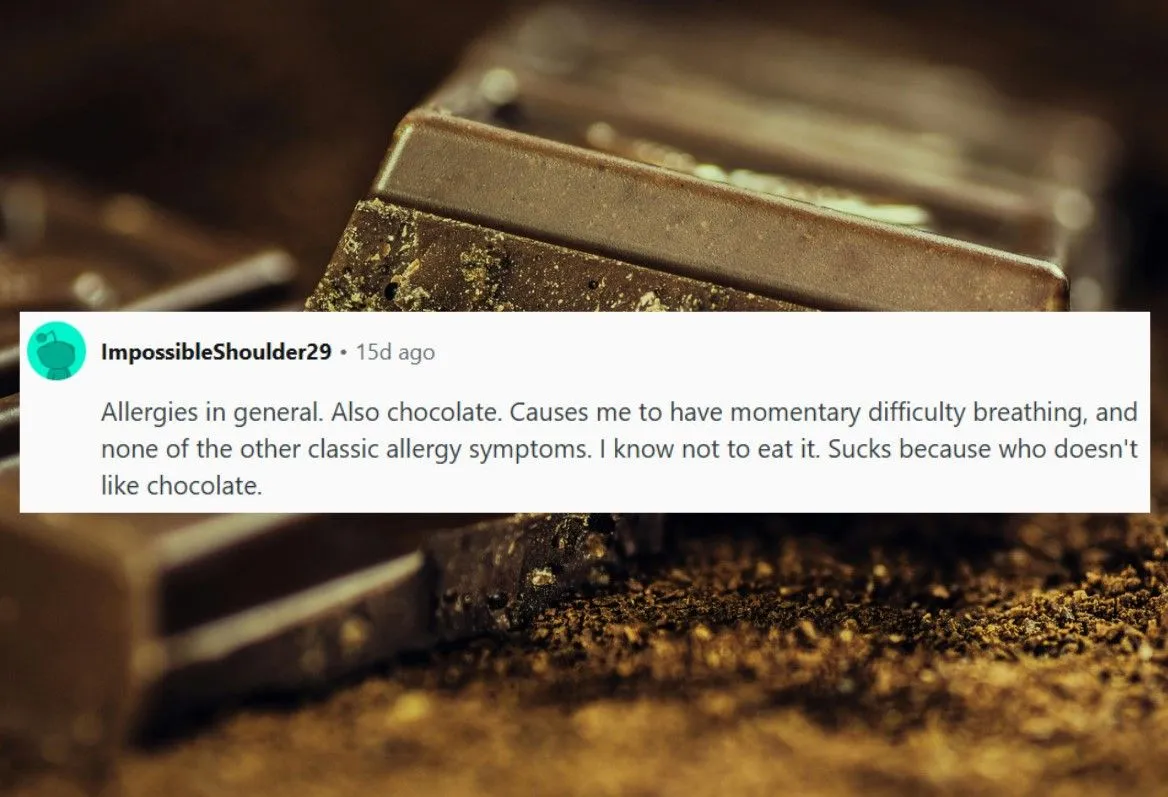
And every time, it’s a conscious choice between pleasure and risk. Sometimes, the craving is stronger than common sense. In that moment, the allergy to tasty food feels particularly awful.
Hypermobility At 36
When a person suddenly realizes they can move in ways that almost no one else can, it initially causes surprise. But then comes the realization: hypermobility isn’t just about flexibility, it’s about weak ligaments, pain, injuries, and a constant feeling that something isn’t “holding” properly.

It’s especially frustrating when the medical system ignores the problem because you don’t fit the typical profile. After all, you're not a yogi, you're someone whose joints have a mind of their own. And it’s not a “quirk,” it’s a diagnosis!
Lipedema Or Just A Body Type?
Sometimes it seems like a person knows more about their body than the doctors do. Especially when the upper half looks totally fine, and the lower half seems like it was "added on top." And not just thick — there’s something odd about it, with undefined knees and constant sensitivity to pain. The weight may not be critical but the appearance suggests something else entirely.

So when someone mentions lipedema, it’s not just a made-up illness, it’s an attempt to understand why their body doesn’t behave the way it’s supposed to. It’s just that until the medical system acknowledges it officially, it still feels like “you invented a problem for yourself.”
Mistakes Out Of Nowhere — Is It Dyslexia?
There are people who often mess up words, skip letters, or read with strange jumps. It might look harmless from the outside but it leaves them frustrated, with the sense that something is off. Even if tests say “no dyslexia,” the doubt lingers.
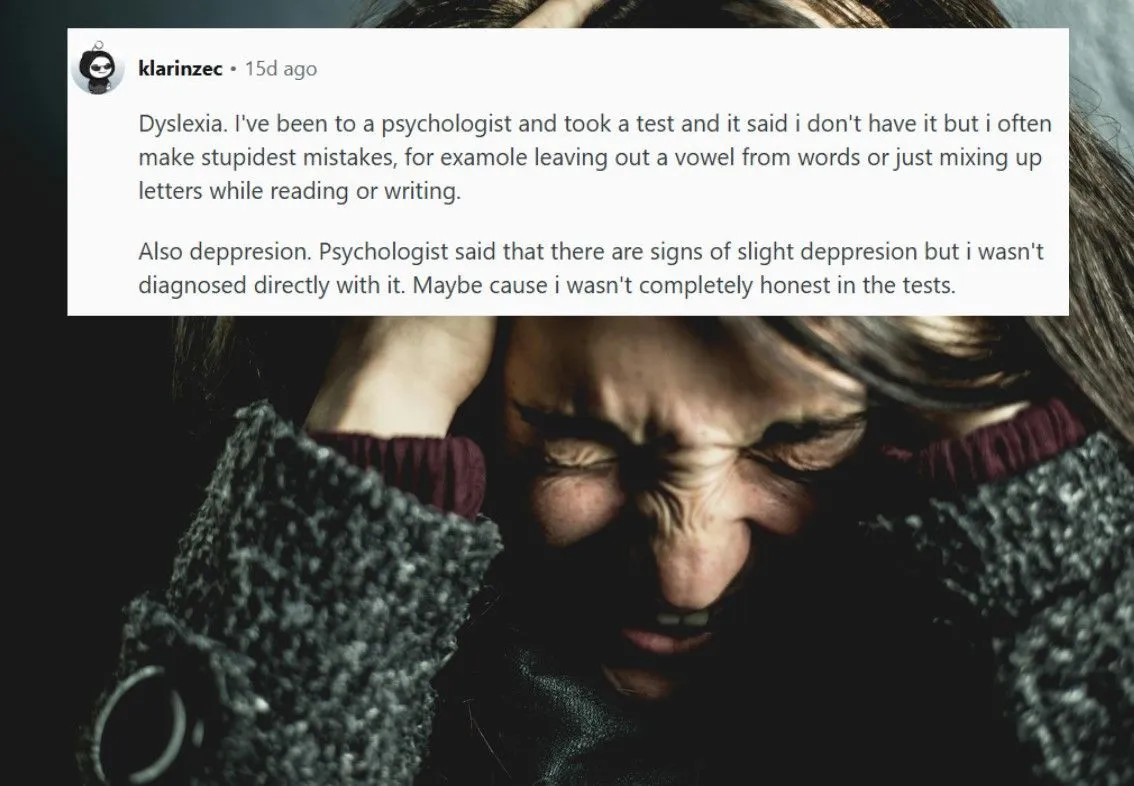
Especially when there’s also a constant feeling of emotional flatness — not enough to be called depression but not really normal either. In those cases, it looks like someone is trying to find an explanation for themselves. And just because the diagnosis wasn’t confirmed doesn’t mean it’s easy for them.
“You’ll Get Diabetes” — A Fear From Childhood
When someone grows up hearing that they’ll “definitely get diabetes” just because they like sweet tea, it leaves a lifelong mental imprint. They may be totally healthy but every sugary drink comes with a mental slap on the wrist.

Even without symptoms, they start to feel almost ill. Of course, it’s important to watch your health — but not at the cost of driving yourself mad with obsessive thoughts.
Intrusive Thoughts That Keep You Up At Night
Sometimes a person starts to notice that they have certain rituals they can’t skip. Like checking the faucet after already going to bed. It doesn’t seem like a big deal — just getting up a hundred times to listen for dripping. But if it happens every night, it’s no longer just a quirk.
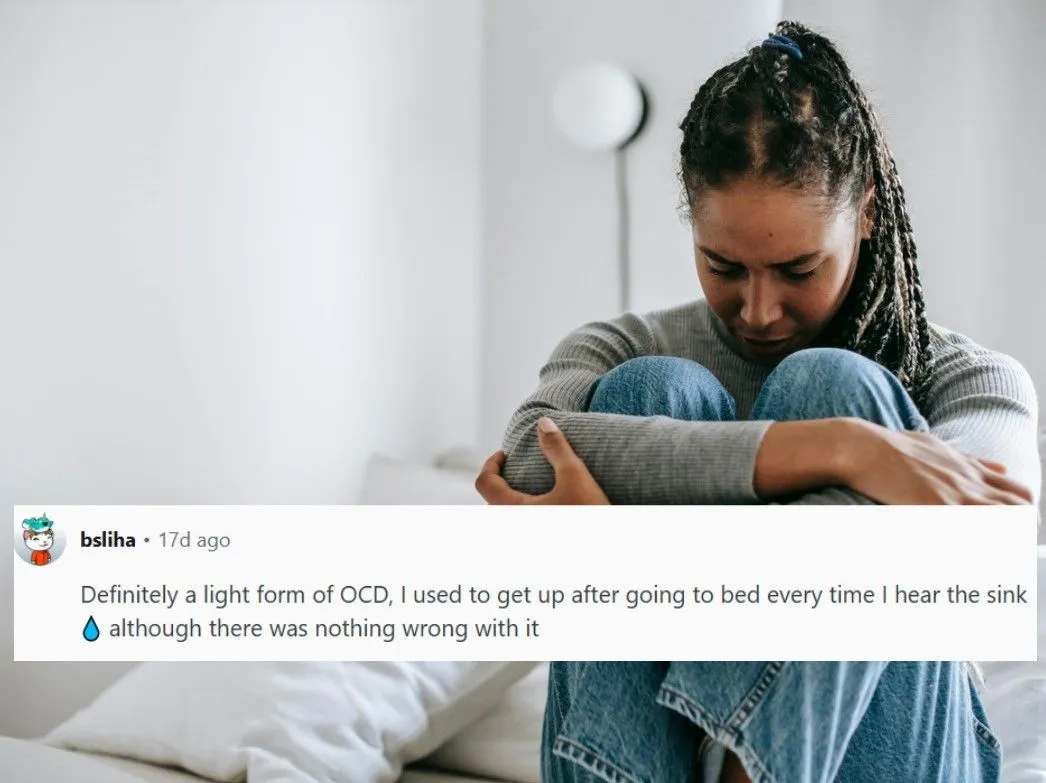
It’s anxiety that no one has named but it’s clearly there. The problem is, the person isn’t ready to call it what it is, because they’re afraid someone will say: “Well, you’re not crazy, are you?”
The Anxiety Of Inherited Illness
When almost everyone in the family has had joint replacements or immune issues, a person can’t help but feel like it’s just a matter of time before it’s their turn. Even if nothing hurts yet, every new pop in the hip sounds like a warning bell. It’s not panic — it’s just being mentally prepared for the worst.

Because the family story has already been written, and they don’t want to be the next chapter. It’s just that the healthcare system often treats these people with skepticism — until the pain becomes too obvious to ignore.
An Itch That Won’t Go Away
Some symptoms sound like a joke when you try to explain them. Like a nonstop itch in the same exact spot on the foot — for years. No rash, no redness but the itch never leaves. On the outside, there’s nothing; on the inside, it’s hell.

And by now, the person isn’t even blaming their shoes or skin anymore — they know it’s something deeper, maybe nerve-related. It’s just too weird-sounding for doctors to take seriously. So they live with it, like their brain is stuck on one signal, and nobody gave them an off switch.
When Hands Turn Blue And No One Cares
Sometimes the body seems to enter winter before the calendar does. A slight drop in temperature — and the fingers go white, then blue, and lose all feeling. This isn’t imagination, it’s just someone who knows something’s not right. But not every obvious symptom is enough to qualify for a diagnosis.
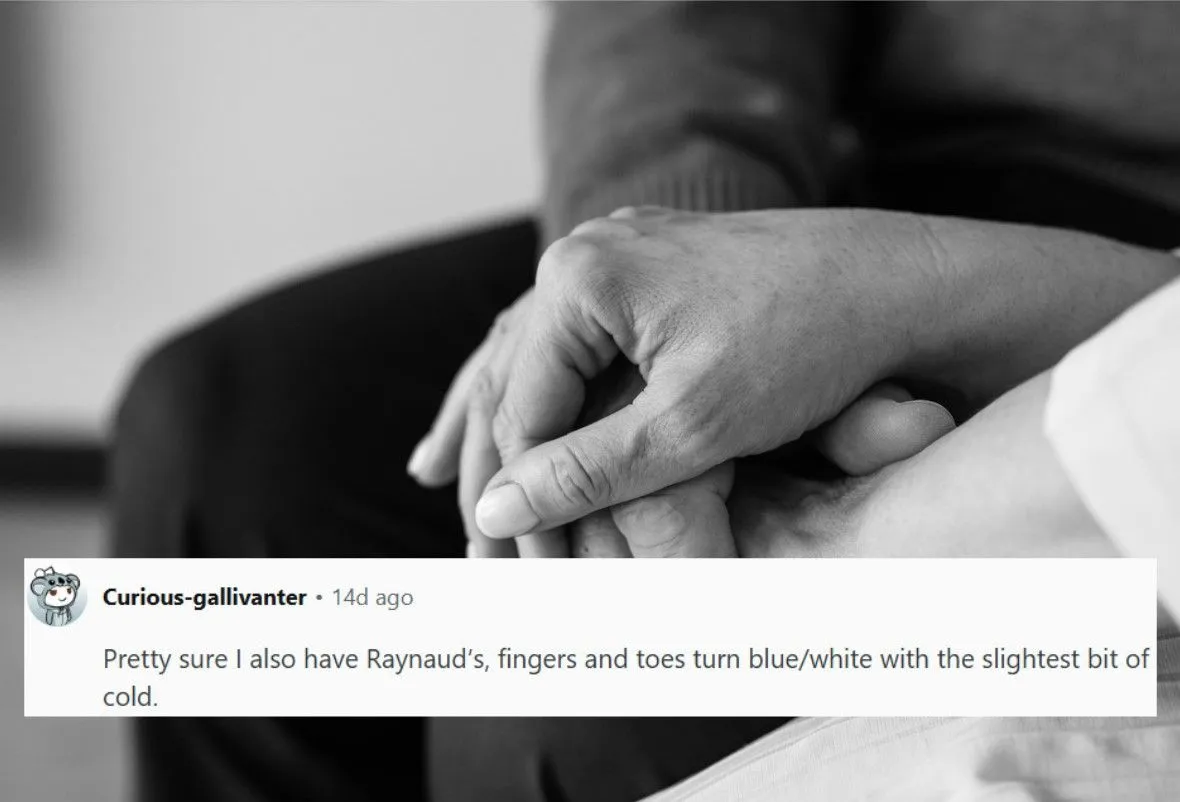
Especially when it’s something like Raynaud’s — that weird condition you can live with but that makes every winter feel like survival mode. So the person just learns to hide their hands and keep quiet, because “it’s not like it’s life-threatening.”
Sometimes Fatigue Isn’t Just “Get Some Rest”
Chronic fatigue and fibromyalgia are among those diagnoses that always seem to get side-eyed. And the person might’ve been one of those skeptics themselves. Until one day, their own body gives up: everything hurts, it’s hard to move, sleep doesn’t help.

But admitting it officially is terrifying. And even with a solid diagnosis like rheumatoid arthritis, there’s still this nagging feeling that the rest must be weakness. But in reality, it’s all connected.
When Reality Starts To Crack
If a person begins to doubt reality, it’s already beyond regular anxiety. They see people but don’t fully believe they’re real, they notice glances that feel sinister. What becomes truly frightening is the very idea that the world might be fake.
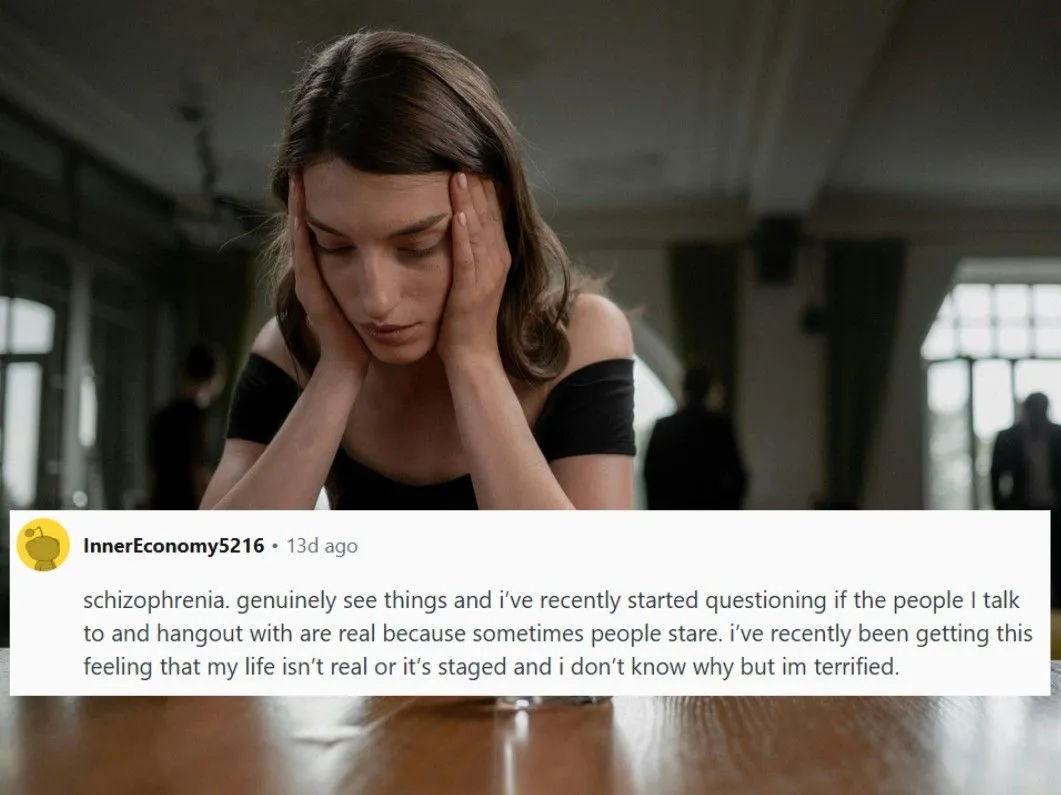
And then it gets worse — because it’s not something you can talk about. You’re afraid people won’t believe you. Or worse, they will — and slap a label on you. So you’re left with nothing but fear — no support, no diagnosis, just the destructive feeling of being completely alone.
Fantasies That Are Truly Terrifying
Some people at one point become convinced of the most irrational things. A grown adult can be absolutely sure they have prostate cancer. Or that their heart has exploded. Or that they’re about to spontaneously combust. On the surface, it may look like quirky eccentricity — but in truth, it’s deep anxiety looking for a way out.

And if it chooses to take the shape of a ridiculous diagnosis, that means there’s tension inside that the person doesn’t know how else to deal with. And no, it doesn’t mean they’re “making it up.” It means they’re scared — they just don’t always know how to explain why.
Back Pain, Tears, And… A Period!
Sometimes fear feels more convincing than logic. When the body starts hurting — especially in the stomach and lower back at the same time — the first thought isn’t something routine. It’s something fatal. Kidney infection. Sepsis. A trip to the ER. Panic, tears, mental goodbyes.

And then — the next day — it turns out to be just the start of a period. But the emotional horror doesn’t disappear. It gets stored deep inside as a reminder: with anxiety, even the most normal symptoms can become a horror movie.
Swollen Lymph Nodes And Scary Thoughts
Even if the doctor says everything is fine, even if there’s been an ultrasound, the brain might not believe it. Especially if the lymph nodes are still there, even if they don’t hurt. An anxious mind follows its own logic. It’ll say, “This is lymphoma,” and no reasoning will be enough to shut it up.

Because stress acts like an infection, and the body becomes a battlefield. A battle no one else sees, and no one else really believes is happening. So you’re left alone with a fear that supposedly comes “out of nowhere,” but feels very real.
Migraine Or Aneurysm? Definitely Aneurysm!
A long-lasting headache is hard enough on its own. But when it suddenly gets worse, an anxious brain doesn’t look for simple causes like tension or fatigue. It jumps straight to: “This is a brain bleed.
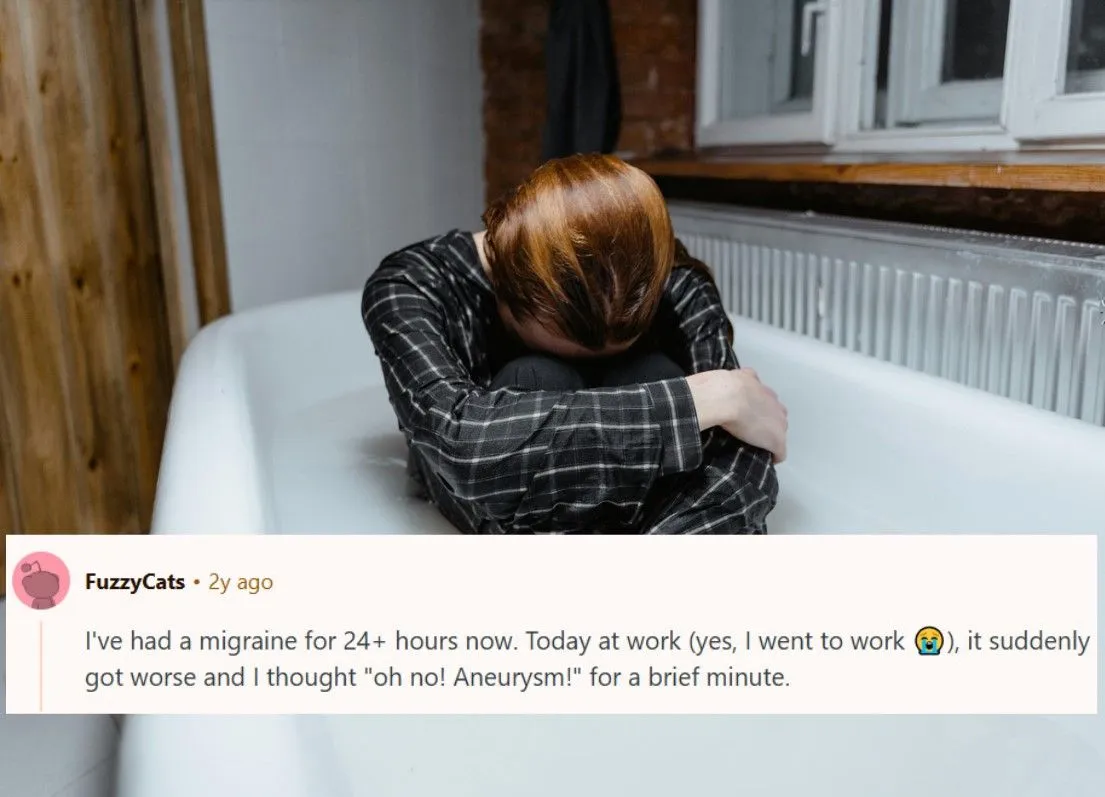
Say goodbye.” Even though it all ends with a painkiller and getting through the day, the panic surge leaves a bitter aftertaste. And it keeps happening. Tiredness, pain, a wave of fear — then repeat.
Coffee With A Side Of Panic
When everything feels suspicious, even a cup of coffee can become a trigger. You take a sip of your favorite drink and suddenly your throat feels tingly. The mind jumps straight to: “Anaphylaxis.” Then come pancakes that taste oddly metallic, and the next thought is: “Poisoning.”

The heart doesn’t race because of toxins — it’s fear doing all the damage. And these are the moments no one sees, the ones that turn a normal day into a paranoid rollercoaster.
A Rash That Triggers Panic
An allergic reaction that disappears with one antihistamine shouldn’t raise any alarms. But when anxiety is dialed all the way up, even a fleeting rash becomes a warning sign. For example, HIV. Not because it makes any sense — but because there’s an inner reflex: always assume the worst.
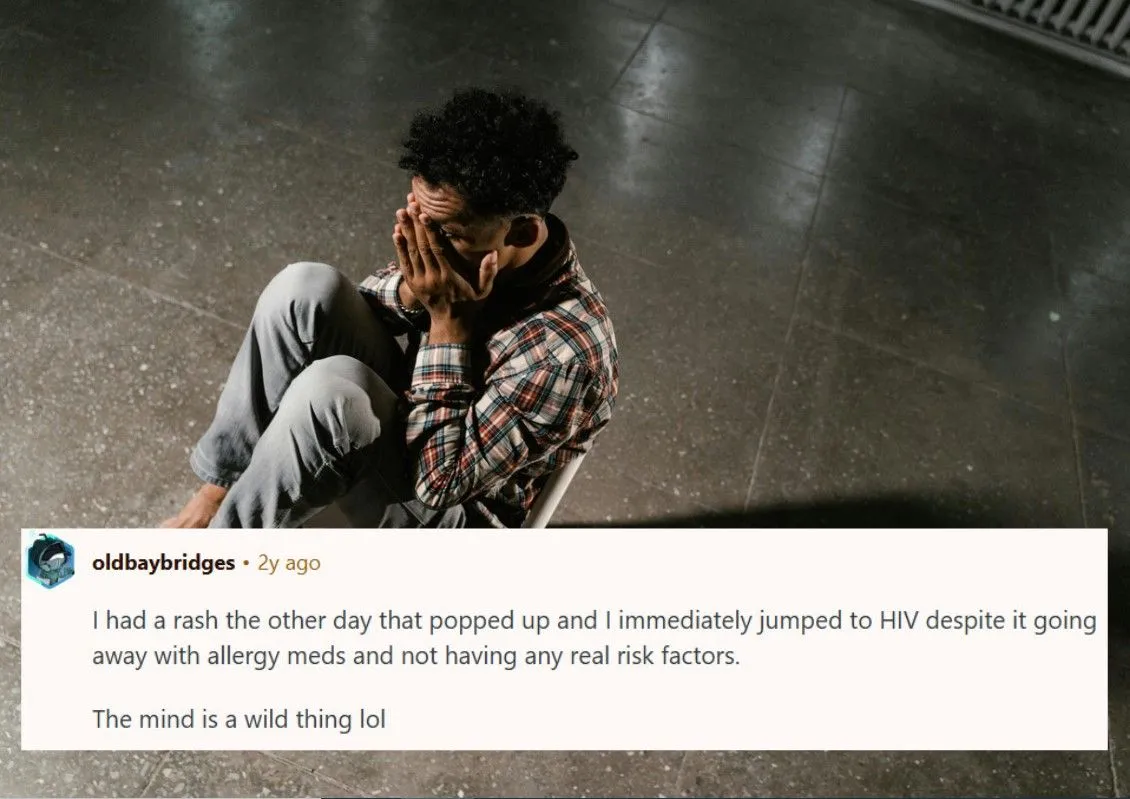
Even if the risk was zero. Even if the rash is long gone. The brain still stores it as “that one symptom.” And after that, it becomes hard to live without analyzing every tiny mark on your skin.
When Anxiety Is Smarter Than Doctors
There is a special kind of anxious person who has a version of Dr. House living inside them. If their throat feels a little scratchy — it’s not just scratchy, it’s a tumor.

A bit of dizziness? Obviously, it’s brain cancer. And yes, they already have five autoimmune conditions but still, every new sneeze is a potential tragedy. So how do you even tell a real illness from an anxious fantasy? That’s a tough question!
When You Get Sick So Often…
When a person is sick a lot, it’s understandable that anxiety might come along with it. You’re not paranoid, you just know that bad things really do happen. You really do have five autoimmune diagnoses, and every two years — like clockwork — some new misfortune enters your life.
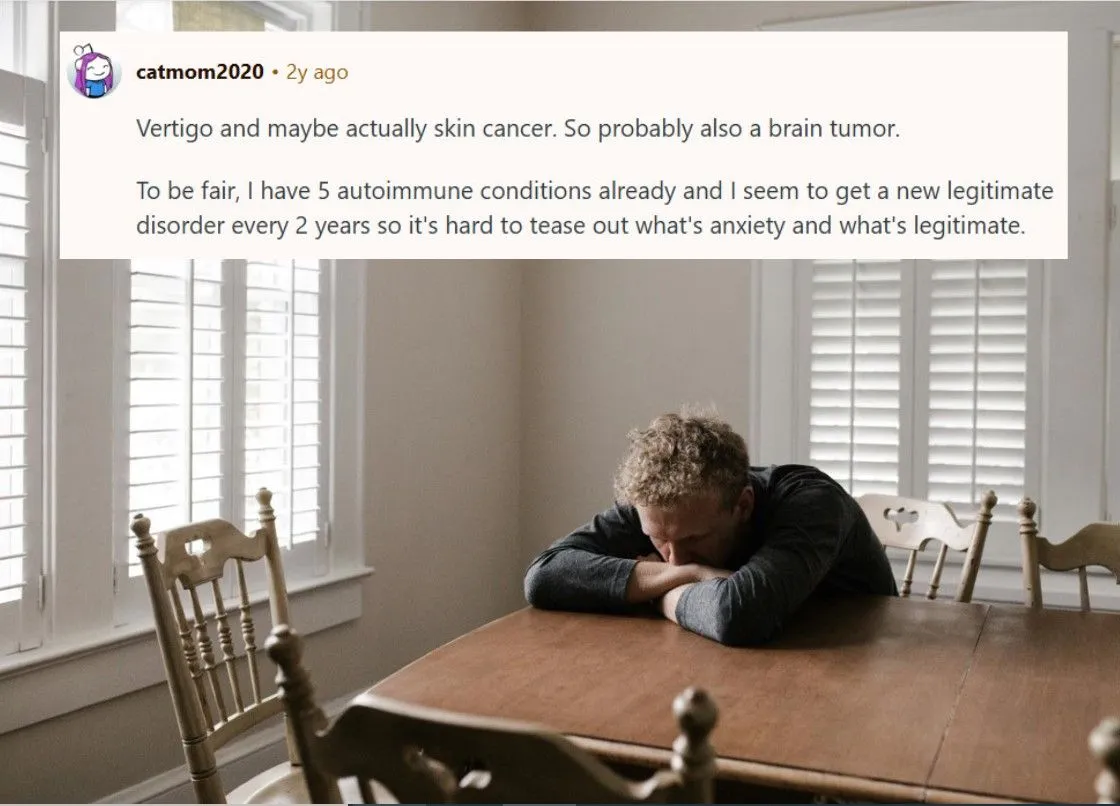
So when dizziness starts, or something strange appears on your skin — your brain doesn’t go with the “wait and see” script, it jumps straight to the ending: it’s a brain tumor, period. And that’s the most absurd part — the more real diagnoses a person has, the harder it is to tell what’s anxiety and what’s reality.
Chest Pain? Call... The Oncologist!
Usually, the evening starts with a person going to bed. But for an anxious person, that’s when the drama begins: something pokes in the chest — which obviously means they’re dying.
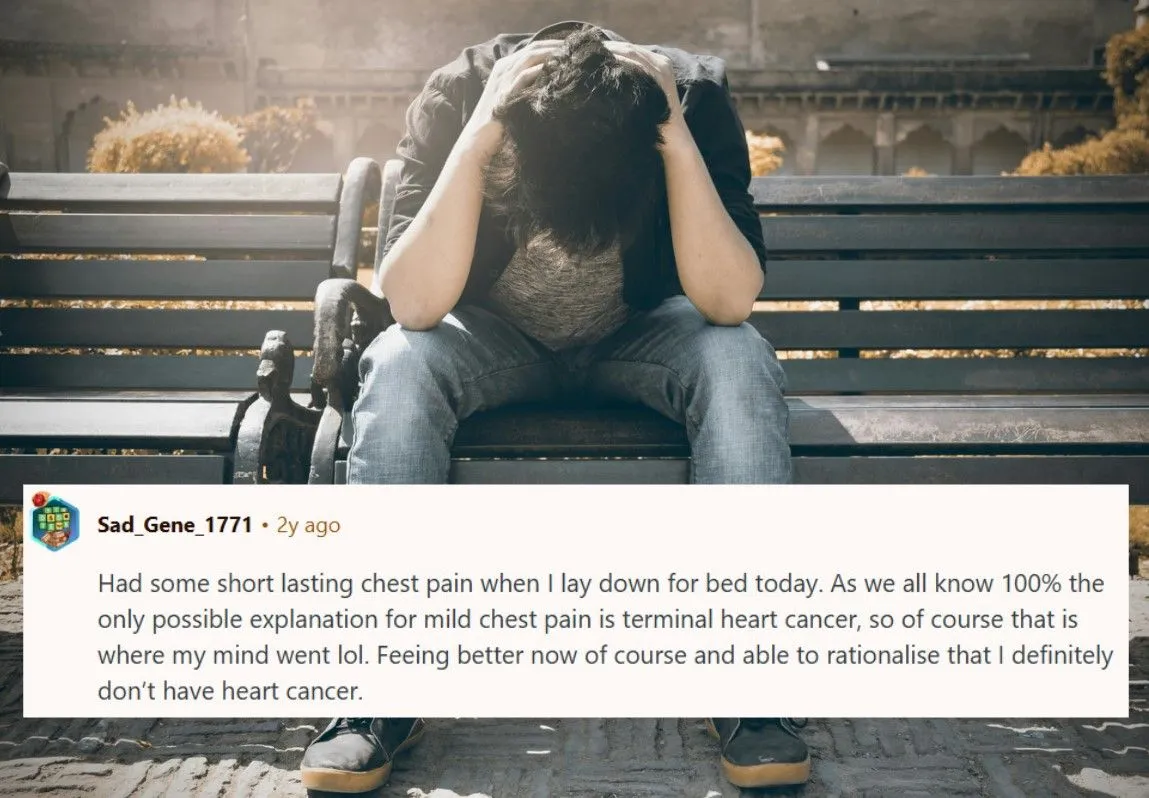
And not just a heart attack — no, of course it’s heart cancer (yes, it sounds ridiculous but the brain has already written the will and picked out the funeral music). A couple of hours later it all goes away, the panic retreats but the fact remains: an anxious brain can turn a fly into a tumor.
First Sinus Infection, Then Covid — What’s Next?
Sometimes everything looks perfectly logical: your nose is stuffy, your head hurts — well, that must be a sinus infection! You go to the pharmacy, get antibiotics, start a long course of treatment... Then a covid test comes back positive, and everything collapses.

Suddenly, you feel really bad — because now the anxiety has official confirmation. Before you were just sick, and now you’re dying. And this is not sarcasm — that’s exactly how an anxious brain works!
A Mouse That Gave An Anxious Person A Major Scare
A story about how helping a sick street rat ended in a call to the rabies hotline. Even though rats and rabies are generally from two different movies entirely. But anxiety never sleeps for some people!

The worst part is, if they touched a street animal, they’re already expecting the worst possible outcome. It’s really hard to live like that!
When Your Lungs Hurt But Your Test Results Don't
So you can’t breathe, your chest feels like it’s on fire, and your lungs have decided to scream every time you lie down — but your doctor looks at your scans and says: “All clear!” Cool! Then why do you feel like you're one deep breath away from collapsing?

Sometimes it’s not about being dramatic — sometimes your body is just really bad at giving accurate signals... or maybe your doctor is just too chill for your level of panic.
Endometriosis or Just Monthly Chaos?
You know what’s fun? Feeling like your organs are being put through a paper shredder every month and still being told “it’s probably normal period pain.”
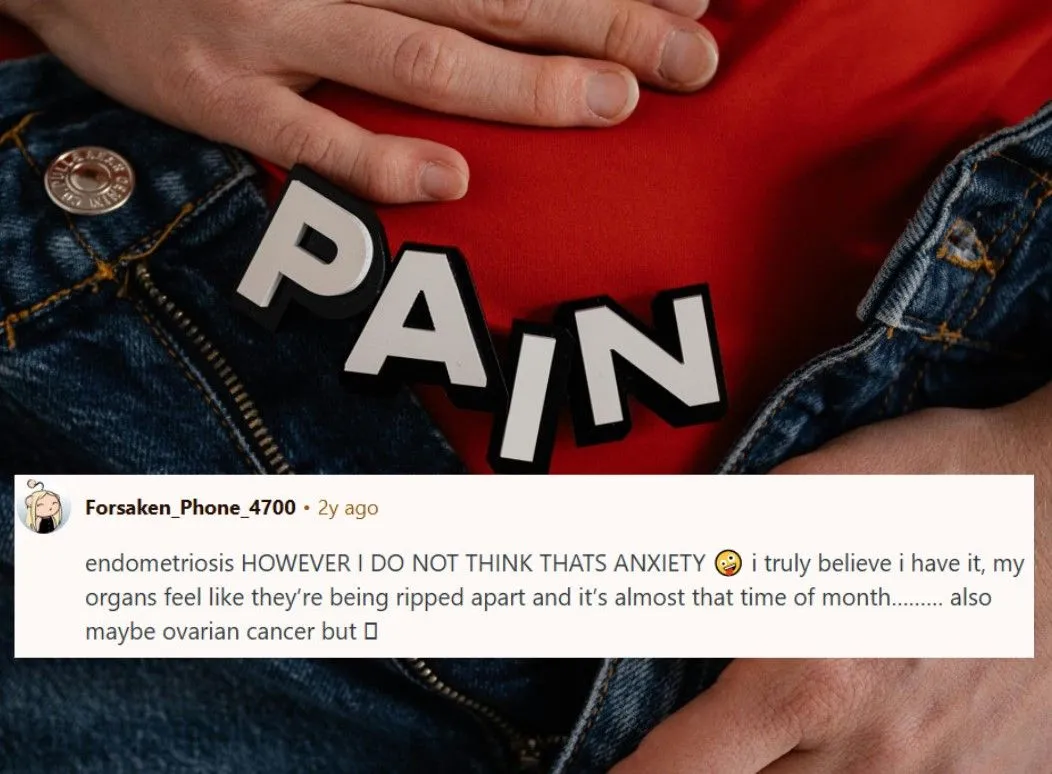
No. It's not! It’s hard to keep calm when every cramp feels like the end of days — and somewhere deep down, you also suspect it might be cancer. Because if anxiety…